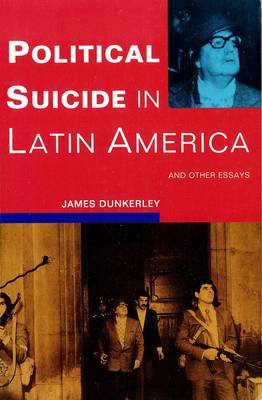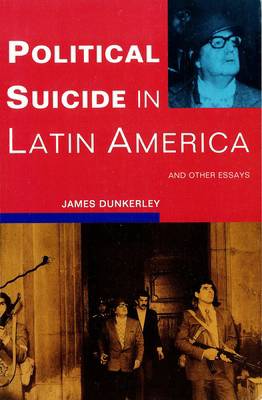
- Afhalen na 1 uur in een winkel met voorraad
- Gratis thuislevering in België vanaf € 30
- Ruim aanbod met 7 miljoen producten
- Afhalen na 1 uur in een winkel met voorraad
- Gratis thuislevering in België vanaf € 30
- Ruim aanbod met 7 miljoen producten
Zoeken
Omschrijving
Over recent years James Dunkerley has established a reputation as one of the most thoughtful and eloquent writers on Latin America. In his latest book he investigates the high incidence of political suicide in the subcontinent. A sensitive and revealing essay details a number of case studies: the still disputed death of Chilean President Salvador Allende during Pinochet's storming of the Moneda Palace in 1973; the case of the Salvadorean guerrilla leader Salvador Cayetano Carpio who shot himself in the heart in April 1983; the death of Brazilian President Getulio Vargas, who declared in April 1954 that he would only leave the presidential palace dead--and a few days later did so; Bolivian President German Busch, who died at his own hand aged thirty-five in 1939; and the dramatic end of Eduardo Chibas, founder of the Cuban People's Party, who shot himself live on Havana radio in 1951. in the pieces which follow, Dunkerley employs his customary acuity to range over the implications of the Sandinista defeat in Nicaragua, the plight of El Salvador, the modern history of Bolivia, the experience of postwar Guatemala and, in a coruscating broadside, the politics of the Peruvian novelist and the presidential candidate Mario Vargas Llosa.
Specificaties
Betrokkenen
- Auteur(s):
- Uitgeverij:
Inhoud
- Aantal bladzijden:
- 272
- Taal:
- Engels
Eigenschappen
- Productcode (EAN):
- 9780860915607
- Verschijningsdatum:
- 17/02/1992
- Uitvoering:
- Paperback
- Formaat:
- Trade paperback (VS)
- Afmetingen:
- 154 mm x 234 mm
- Gewicht:
- 417 g

Alleen bij Standaard Boekhandel
+ 51 punten op je klantenkaart van Standaard Boekhandel
Beoordelingen
We publiceren alleen reviews die voldoen aan de voorwaarden voor reviews. Bekijk onze voorwaarden voor reviews.







